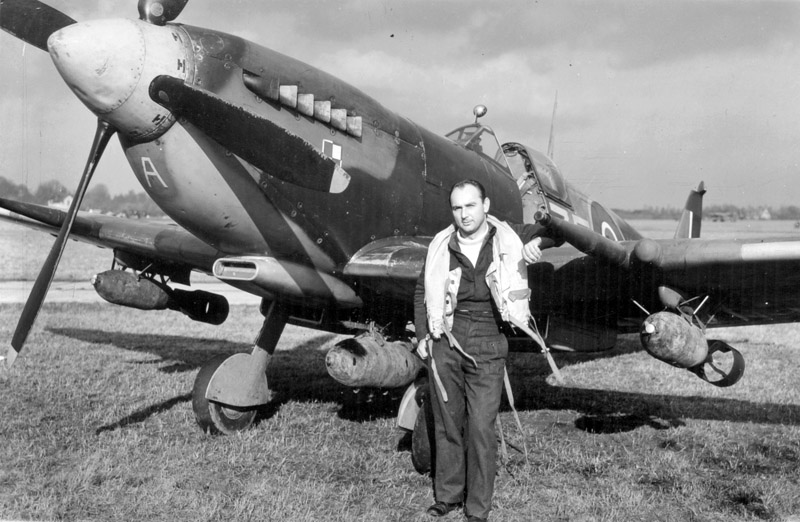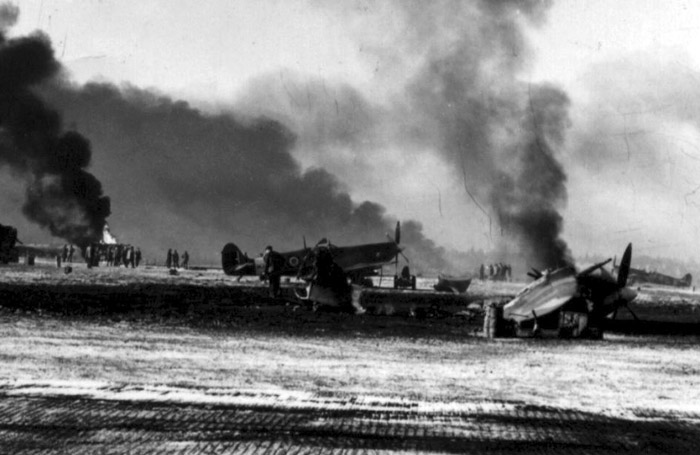- Point of Interest
- Maaltekouter 1, Gand, Belgique
The respect Polish pilots enjoyed during the Second World War was well earned, as evidenced by winning a battle during the last major air offensive of the Luftwaffe in 1945 on New Year’s Day.
“It was probably one of the last classic dogfights, where pilots employed all of their acrobatic skills and lightning-fast reflexes” – recalled a participant of the battle above Ghent, Squadron 308’s pilot Jerzy Glówczewski. On the last day of 1944 many Allied soldiers, including the Polish pilots from the No. 131 Wing celebrated a New Year’s Eve Party. Just as the Germans anticipated. The German army had been on the offence for two weeks in the Ardennes, and the German command was preparing the „Bodenplatte” operation. Almost all battle aircrafts, over a thousand machines, were gathered to make a surprise strike at the Allies’ airports. After destroying enemy machines on the ground, they planned to regain dominance in the air.
The pilots of the Fighter Squadrons 302 (“City of Poznan”), 308 (“City of Kraków”) and 317 (“City of Wilno”), composing the No. 131 Wing, had unknowingly partied all night, when the order to bomb some bridges to stop the German advance came. Around 8.30 three Squadrons took off to complete the task. Thanks to a coincidence, 40 German fighters Focke-Wulf Fw 190 did not surprise Polish pilots on the ground. In fact, they were surprised by the Polish pilots coming back from their mission. Soon there were almost a hundred fighters in the sky. Despite the night spent awake, Polish pilots immediately gained the advantage. Lt. Waclaw Chojecki and Lt. Tadeusz Powierz were killed that morning. The Germans, however, lost 20 or 21 fighters. The Polish pilots again demonstrated their skills and proved that their reputation as fighter pilots was well founded. During the „Bodenplatte” operation, Luftwaffe lost 304 planes, making it impossible to guard the skies of the Third Reich. The dogfight above Ghent turned out to be the last major aerial battle for Polish pilots of the II World War.


